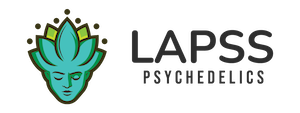What Does the Science Say About Psilocybin?

Psilocybin is a naturally occurring psychedelic compound found in certain species of mushrooms, commonly known as “magic mushrooms.” In recent years, there has been a resurgence of interest in the potential therapeutic benefits of psilocybin, leading to a number of scientific studies on the topic.
One of the most promising areas of research on psilocybin is its potential to treat mental health disorders such as depression, anxiety, and post-traumatic stress disorder (PTSD). In a small study conducted by researchers at Johns Hopkins University, a single dose of psilocybin was found to significantly reduce symptoms of depression and anxiety in cancer patients for up to six months after treatment. In another study, psilocybin was shown to be effective in reducing symptoms of PTSD in a small group of subjects.
In addition to its potential therapeutic benefits, psilocybin has also been studied for its effects on the brain. In a recent study, researchers at Imperial College London used functional magnetic resonance imaging (fMRI) to observe the brain activity of subjects who had been given psilocybin. They found that the drug caused a decrease in blood flow to the default mode network (DMN), a network of brain regions that is believed to be involved in self-referential thought and mind-wandering. This decrease in blood flow was accompanied by an increase in connectivity between different brain regions, suggesting that psilocybin may have a “unifying” effect on the brain.
Despite the exciting findings of these studies, it is important to note that the research on psilocybin is still in its early stages and much more work is needed to fully understand its effects on the brain and its potential therapeutic uses. Additionally, psilocybin is currently a Schedule I controlled substance in the United States, which means that it is illegal to possess, distribute, or use the drug for any purpose. This makes it difficult for researchers to study the effects of psilocybin and may limit its potential use in the clinic.
It is also worth mentioning that, as with any psychoactive substance, psilocybin can produce side effects and can be harmful if used improperly. In high doses, psilocybin can cause intense hallucinations and changes in perception, which can be disorienting and potentially lead to accidents or other harmful situations. It is important for anyone considering using psilocybin for therapeutic or recreational purposes to do so under the guidance of a trained professional and in a controlled environment.
In conclusion, the latest scientific findings on psilocybin suggest that it has the potential to be a useful tool in the treatment of mental health disorders such as depression and PTSD. However, much more research is needed to fully understand its effects and determine its safety and efficacy. Until then, psilocybin remains a controlled substance and should be used with caution.
